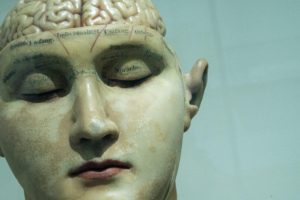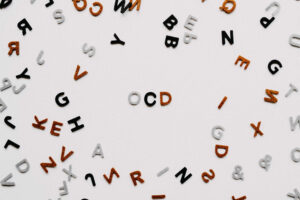
Who would have figured that some of the biggest minds throughout history were doing science in God’s name? Living back in the day made believing in a religion all the more easy. Although, holding faith in the name of scientific pursuit may seem strange, it was fairly common place back then. Just because someone was religious did not mean that they could not figure some of the basics of reality out. Through trial and error and the right kind of mind, you can figure anything out. “What scientists?”, you ask. Well, that is a fine question. I am going to list below the 10 amazing scientists who were religious.
The 10 Amazing Scientists Who Were Religious
1. Issac Newton
Sir Issac Newton was an English scientist born in the 17th century. He is considered a mathematician, physicist, astronomer, and author. Newton made a litany of discoveries regarding optics, motion, and gravity. He is still one of the most well-known scientists today for his contribution to calculus. He is also one of the most renowned scientists of all time, but you already knew that, didn’t you? However, did you know that this famous scientist was also a theologian? Yeah, all those apples must’ve dropped in the wrong basket.
—
Issac Newton considered himself a man of god and a Christian. He would often study the Bible for days and weeks at a time. This is where most of his understanding of religion came from. He even wrote 1.3 million words about biblical texts. It even seems that he spent more time on theology than science. Many would consider him a religious scholar. Did this one hit you like the speed of light?
2. Galileo Galilei
Galileo Galilei was an Italian scientist born in the 16th century. He is often considered a polymath known for his work in astronomy, physics, math, and engineering. He is considered the father of observational astronomy, the scientific method, modern science, and modern physics. Galileo studied speed, philosophy, velocity and gravity, among others. He considered mathematics the language of understanding and describing the universe.
—
Galileo was a man of god, but felt he needed to hide his theories to save his own life. Galileo was, as you guessed it, a Catholic. He did however want to make his voice heard in the name of science. Be believed in the great role of science in understanding the beauty of “God’s creation”. It makes sense, considering it was a time of great religious influence.
The 10 Amazing Scientists Who Were Religious
3. Nicolaus Copernicus
Nicolaus Copernicus was a Polish renaissance era scientist born in the 15th century. He is well known for his studies in astronomy and mathematics. He is the scientist who formulated that the sun was the middle of the universe, not the earth. This is known as the heliocentric model, as opposed to the older geocentric model. Many of his beliefs were based on speculation, as means to understanding reality in his time were obviously rough.
—
Copernicus was also a Catholic canon, making him a minor member of the hierarchy. However, as much as he shared his beliefs, many were often skeptical of him based on his scientific background. The Catholic Church was often silent in reaction to Copernicus and his desires to assimilate. However, over time, his influence became more and more a conversation among the church for serious consideration.
4. Blaise Pascal
Blaise Pascal was a French scientist born in the 17th century. He was known for his work in mathematics, philosophy, science, invention and theology. Yes, you get the point; they all had a “secret” religious side. Pascal is well known for being a pioneer in game and probability theory. Not only this, he was also a proponent of existentialism in his time. He is also the pioneer of Pascal’s wager, a philosophical argument in favor of believing in God.
—
Pascal is well known for being a scientist well in favor of defending Christianity. Thank God! He often wrote all sorts of things on theology and religion. It has been said that he was a Jansenist, a Catholic movement. Did you know that he preached the idea of belief and experience of God through the heart and not reason? If you feel it, it shall be true! He is additionally known for his Pascal’s principle of pressure.
The 10 Amazing Scientists Who Were Religious
5. Johannes Kepler
Johannes Kepler was a German scientist born in the 16th century. He is often regarded as one of the greatest astronomers of all time. He is known for being an astronomer, mathematician, and astrologer. Kepler also played a key role during the scientific revolution of the 17th century. He is renowned for his discoveries in mathematics and his laws of planetary motion.
—
Johannes Kepler was also a man of religion, and you guessed it, he was a follower of Christianity. He was raised in a Lutheran family, and he adhered to the Augsburg Confession, a defining document of Lutheranism. Although he was a Lutheran, he did not adhere to the position of the real presence. He refused to sign the Formula of Concord. In the end, he was left alienated by both Catholicism and Lutheranism because of his refusals to cooperate on either side.
6. Heinrich Hertz
Heinrich Hertz was a German scientist who was born in the 19th century. He is well known for his contributions to physics and the understanding that the electromagnetic waves predicted by our next entry James Clerk Maxwell actually existed. Hertz also discovered the photoelectric effect. Peers of his gave his namesake to the frequency, known as the hertz, he discovered; a cycle per second is one hertz.
—
Beyond his understanding of science was a belief in God. Hertz’s father’s surname was Jewish, but he did not consider it so. His grandfather was a rich Jewish businessman who had married and converted to Lutheranism. He was raised Lutheran, but as far as anyone can tell, religion didn’t play too much of a significant role in his life. Regardless of his faith, he enjoyed playing with tools.
The 10 Amazing Scientists Who Were Religious
7. James Clerk Maxwell
James Clerk Maxwell was a Scottish scientist born in the early 19th century. He is known for as his contributions to mathematical physics and his Maxwell equations. Maxwell is famous for his theories on electromagnetism, showing that light was electromagnetic radiation. This is said to have paved way for modern day quantum mechanics and Einstein’s theory of special relativity. Hah, and they said that the Scottish didn’t have it in them!
—
Moreover, Maxwell was a religious man and committed Presbyterian evangelical Christian. Many of his letters displayed such devout religious beliefs. He had letter conversations with the Bishop of Gloucester and Bristol concerning his understanding of physics and light. He also seemed to have recognized how theories may end up changing later on. Now that’s an understanding of the scientific method!
8. Lord Kelvin
Lord Kelvin, named William Thomson at birth, was a British scientist born in the early 19th century. He is know for his works in mathematical physics and engineering. He was the one who created the international unit of absolute temperature known as degrees Kelvin. Not only this, he was know for the prestigious number of patents for his inventions. He contributed to the fields of electricity, magnetism, thermodynamics, hydrodynamics, geophysics and telegraphy, among others.
—
Also, as you can spot from over a mile away, Kelvin was a believer in Christ. He made his mark in religious circles, too. Like the previous intellectuals on this list, we cannot undoubtedly say for sure that he was religious. However, it is known that Kelvin was an elder in the Church of Scotland and the Chairman of the Christian Evidence Society. All he needed now was the evidence.
The 10 Amazing Scientists Who Were Religious
9. Arthur Eddington
Arthur Eddington was an English scientist born towards the end of the 19th century. He made contributions to the subjects of astronomy, mathematics and physics. Eddington is famous for his greatest works in astrophysics, motion investigation, internal structure, and the evolution of stars including the Eddington experiment. He was the first expositor of the theory of relativity in the English language. So, thanks to him, we know who Einstein was!
—
Eddington was a lifetime Quaker, although I do not think he favored the oatmeal. He was deeply religious, and he wore his religion on his sleeves. It is not yet determined if he favored his religion over science or not. It is also been speculated that he tried to combine both of his passions, theology and science, together. I suppose we will never know.
10. Werner Heisenberg
Werner Heisenberg was a German scientist born at the very beginning of the 20th century. He is well known for his namesake Heisenberg uncertainty principle and work in quantum mechanics. Heisenberg is notable for his formulation of quantum mechanics based on matrices. During his early years in 1927, he proposed this “uncertainly relation,” which set limits for how precisely the position and velocity of a particle can be simultaneously determined. He won the 1932 Nobel prize in physics for this discovery. Considering we haven’t found that cat yet, I would say that it was not there to begin with.
—
While not considerably known, Heisenberg was a religious man. He subscribed to the Lutheran and Calvinistic mixture. He was a member of the Evangelische Kirche, which his family had traditionally attended. Although, he had mentioned that he did not adhere to all of the tenets as his grandparents had. This is great, considering all people eventually learn to outgrow their traditions through generations.
Final Thoughts: The 10 Amazing Scientists Who Were Religious
Even the brightest of us have shortcomings by mixing religion and science. Just be aware that there is a science of religion and religion of science.





Recent Comments